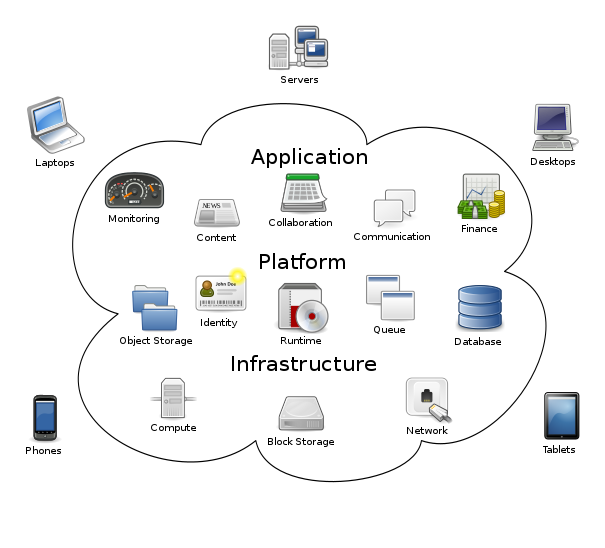
Amazon, the company famous for the largest online store in the world, based on its huge base of hardware and knowledge, provides cloud solutions for everyone. The service, called Amazon Web Services (AWS), allows us to host applications in any programming language and with any configuration we need. Amazon puts at our disposal the EC2 service, which gives us full access to resources of a dedicated server with root privileges. So we can install any operating system and configure it freely. We don't have to rest at a single server. The potential of cloud computing is scalability. We can run any number of server instances with the same or a different configuration. Amazon puts in our hands the tools for automatic starting and stopping instances, depending on current traffic or load.

Undoubtedly the most popular AWS service is however S3 (Simple Storage Service). This service allows us to store any number of files in the cloud. The only limitation of this service is a file size of up to 5 TB. Such a high limit can be taken to be a lack of limits by which S3 is great for bloggers, graphic designers, webmasters and really anyone on the Internet. The service can even be used as a backup disk with a copy of your most important files or your entire operating system.

You may wonder, where's the catch? Nowhere, but the service is not for free. The bottom line is, however, that we pay only for what we actually use. So we pay for every second of the exact use of the server rather than in advance for the whole year as is the case in most hosting companies. At S3 we also pay only for the amount of space used and generated traffic. For more information, refer to AWS: http://aws.amazon.com/
Good topic but if I well know this kind of topic are forbidden on this conversatorium. Despite of ban on this topic it is interesting and good to know that this kind of service exist. Thanks
ReplyDeleteFor me, cloud computing has two biggest pros. First is the ability to store data to retrieve it anytime and anywhere. For example, cell phone stores your contacts and you can fetch it after loss of data etc. Second thing, no need to invest so much in infrastructure and paying for usage, not for simply having something.
ReplyDeleteOf course, there are always problems such as privacy of your information.
Nonetheless, it's good to have a choice.
I have also heard that so specialised topics are forbidden. It is directed to just part of the blog participants. I'm not a programist so I can't use that knowledge:( But if it somehow supported 3D rendering (cheaper than usual render-farm) I would go deeper in the topic:)
ReplyDeleteI didn't know about forbidden topics because I'm attending for the first time to the blog's discussions. I apologize if anyone felt excluded.
ReplyDelete@Jan Kuczyński: Amazon actually offers NVIDIA Tesla "Fermi" graphics processing units which are perfect for rendering 3D graphics.
Cloud computing - cool and also I love when scien-fiction comes to live :), and if I will habe it company I'll sure use it.
ReplyDeleteIt's a definitely interesting option, first time I read about it more than year ago and since then I'm very curious how fast it will become popular, some of my frinds already use this method and they are very satisfied with it.
ReplyDeleteWe can not talk at this konwersatorium about things related to IT!! Anyway, I never heard about it. Really!
ReplyDeleteThis topic is forbidden on this blog because we can't talk about IT cases. However, this is very interesting and modern topic.
ReplyDeleteAgain, sorry.
ReplyDeleteWe should talk about things referring to our interests, it's completely inconceivable forbidding us to talk about IT. I think, for most of us it's far more usefull discussing about IT-technologies rather than e.g. "pets fashion".
ReplyDeletenice tutorial about Amazon S3 for Java & PHP developers
ups, my comment always just in time :)
ReplyDelete